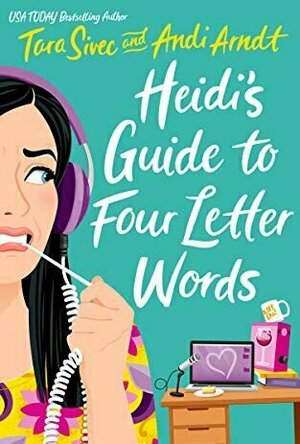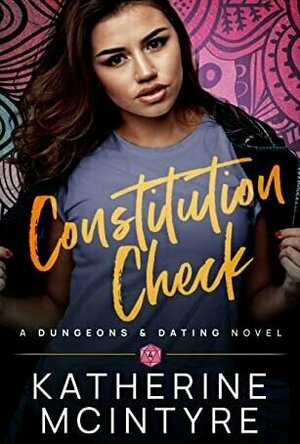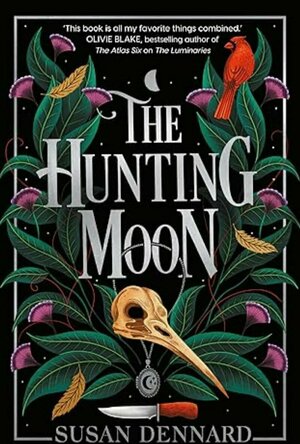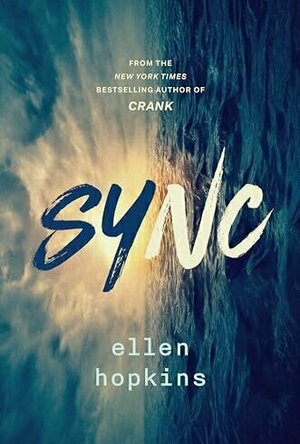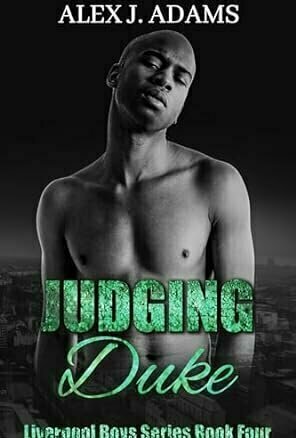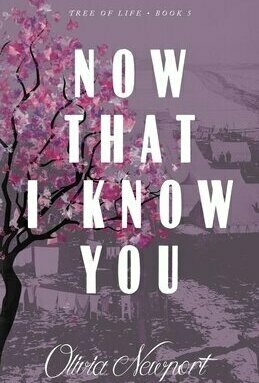Search
Search results
Leanne Crabtree (480 KP) rated Heidi's Guide to Four Letter Words in Books
Jan 12, 2021
This starts with Heidi trying to find a job and her mum and aunt going through a list of schools they think she should work at and Heidi listening miserably, knowing education isn't something she enjoyed. Instead she's applied to be in a receptionist type role at a local small business, not knowing at the time that they record erotic romances in audiobook form. Heidi is equally embarrassed and curious about what goes on at her place of work and with the help of her colleagues begins a podcast where she talks about her hot neighbour who she'd love to date and becoming more confident in saying those tricky four letter words.
I wasn't sure with this to start with. I found Heidi's almost prudishness too much at the start. I can't quite believe that she doesn't even allow herself to think swear words let alone say them. I don't know if it was her religious upbringing or her parents - who I found really annoying at times. It was nice to see her grow more confident in herself with every podcast she broadcasts and book scene she reads.
This one does have some comedy elements in it but, for me, the speech to text thing was hilarious and the funniest part. I couldn't stop laughing for quite a while with that one.
The romance in this didn't seem to take up as much of the book as I'd have liked. I think it got to around the 35% mark before the romance even started to kick in. They had talked briefly and acknowledged each other in the street but it was only after she'd done a few of her podcasts that she even had the guts to approach him for a date and then it was a slow burn into a cute romance. It was a really nice relationship they'd built up and then "the thing" that split them apart for a little while was blown out of proportion - as they do in romance books - before they sorted it out and were cuter than ever.
One thing I didn't understand was the "uff da" thing. I even had to look it up to figure out what that bit was all about. It still seemed a rather odd exclamation to me so I read it as oomph/oof noise.
If you like romantic comedies then you should give this a go.
I wasn't sure with this to start with. I found Heidi's almost prudishness too much at the start. I can't quite believe that she doesn't even allow herself to think swear words let alone say them. I don't know if it was her religious upbringing or her parents - who I found really annoying at times. It was nice to see her grow more confident in herself with every podcast she broadcasts and book scene she reads.
This one does have some comedy elements in it but, for me, the speech to text thing was hilarious and the funniest part. I couldn't stop laughing for quite a while with that one.
The romance in this didn't seem to take up as much of the book as I'd have liked. I think it got to around the 35% mark before the romance even started to kick in. They had talked briefly and acknowledged each other in the street but it was only after she'd done a few of her podcasts that she even had the guts to approach him for a date and then it was a slow burn into a cute romance. It was a really nice relationship they'd built up and then "the thing" that split them apart for a little while was blown out of proportion - as they do in romance books - before they sorted it out and were cuter than ever.
One thing I didn't understand was the "uff da" thing. I even had to look it up to figure out what that bit was all about. It still seemed a rather odd exclamation to me so I read it as oomph/oof noise.
If you like romantic comedies then you should give this a go.
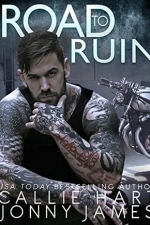
Road To Ruin
Book
Malicious Destruction of Property. Two counts of breaking and entering. Two counts of possession...
dark romance romance contemporary

Horror Stories: A Memoir by Liz Phair
Book
From the two-time Grammy-nominated singer-songwriter behind the groundbreaking album Exile in...

NaturalReader Pro
Education and Productivity
App
NaturalReader is text-to-speech app that reads webpages, documents, and eBooks aloud to you with our...
Ali A (82 KP) rated How To Succeed in Witchcraft in Books
Sep 27, 2022
Trigger Warnings: Grooming, prejudice, racism
Shay Johnson is a junior at T.K. Anderson Magical Magnet School and has done everything she possibly can to win the full-ride Brockton Scholarship - her ticket into the university of her dreams. Her only real competition is Ana Alvarez, but Shay also knows if she can impress Mr.B, the drama teacher and head of the scholarship committee, she’ll have an upper leg.
When Mr.B “persuades” Shay into being in the school’s racially diverse musical, in their no-so-diverse school, she agrees, and lands the leading role. But Ana is right behind her playing the second female lead. With the start of rehearsals, Shay realizes Ana isn’t the intense enemy she’s always thought she was… perhaps, she would be a friend, or more?
But when Shay gets asked by Mr.B to do some one-on-one practicing for the musical, she finds herself on the receiving end of Mr.B’s unpleasant and unwanted attention. When Shay learns she’s not the first witch to experience his inappropriate behavior, she must decide if she’ll come forward. But, will speaking out cancel her opportunity for the scholarship - her future?
This book deals with a lot of hard topics: grooming, prejudice, abuse of power, racism. I feel like Aislinn Brophy did a good job in writing the predatory actions that Mr.B was doing with Shay - every time something between them happened, it made my skin crawl.
I did enjoy the enemy-to-lovers storyline; or should I say misunderstandings-to-lovers storyline? It was cute and adorable and nothing drastically changed afterwards (besides more cuteness).
Though the title I feel like the title is a little deceiving, I still liked that magic was a part of the world here, but that magic doesn’t fix everything. Even in a world where you can fly around on brooms and make potions to help you wake up, the world is still far from perfect.
Overall, this is a magic-filled book that dives into where one draws the line on what they will allow to happen in order to get something they’ve worked so hard for their entire life. A good read for the witchy season coming up, but also a good read for the message behind it.
*Thank you G.P. Putnam’s Sons Books for Young Reads and BookishFirst for a copy of this book in exchange for an honest review
Shay Johnson is a junior at T.K. Anderson Magical Magnet School and has done everything she possibly can to win the full-ride Brockton Scholarship - her ticket into the university of her dreams. Her only real competition is Ana Alvarez, but Shay also knows if she can impress Mr.B, the drama teacher and head of the scholarship committee, she’ll have an upper leg.
When Mr.B “persuades” Shay into being in the school’s racially diverse musical, in their no-so-diverse school, she agrees, and lands the leading role. But Ana is right behind her playing the second female lead. With the start of rehearsals, Shay realizes Ana isn’t the intense enemy she’s always thought she was… perhaps, she would be a friend, or more?
But when Shay gets asked by Mr.B to do some one-on-one practicing for the musical, she finds herself on the receiving end of Mr.B’s unpleasant and unwanted attention. When Shay learns she’s not the first witch to experience his inappropriate behavior, she must decide if she’ll come forward. But, will speaking out cancel her opportunity for the scholarship - her future?
This book deals with a lot of hard topics: grooming, prejudice, abuse of power, racism. I feel like Aislinn Brophy did a good job in writing the predatory actions that Mr.B was doing with Shay - every time something between them happened, it made my skin crawl.
I did enjoy the enemy-to-lovers storyline; or should I say misunderstandings-to-lovers storyline? It was cute and adorable and nothing drastically changed afterwards (besides more cuteness).
Though the title I feel like the title is a little deceiving, I still liked that magic was a part of the world here, but that magic doesn’t fix everything. Even in a world where you can fly around on brooms and make potions to help you wake up, the world is still far from perfect.
Overall, this is a magic-filled book that dives into where one draws the line on what they will allow to happen in order to get something they’ve worked so hard for their entire life. A good read for the witchy season coming up, but also a good read for the message behind it.
*Thank you G.P. Putnam’s Sons Books for Young Reads and BookishFirst for a copy of this book in exchange for an honest review
Debbiereadsbook (1669 KP) rated Constitution Check (Dungeons and Dating #4) by Katherine McIntyre in Books
Sep 24, 2022
i love this series!
Independent reviewer for Archaeolibrarian, I was gifted my copy of this book.
This is book 4 in the Dungeons & Dating book, and while not strictly necessary to have read the other three before this, I STRONGLY recommend you do. Not least because they are ALL five star reads, from me. But I would probably say read book 3, at least. Something happens in that book that leads into this one, and you get an inkling as to what Kelly is living through.
Ms McIntyre never ceases to amaze me, she can flip on a penny and it takes you a while to catch up with that little nugget of info, or this little comment that someone says. I have to slow my reading down to pay great attention, and I love that I have to.
Both Tabby and Kelly appear in previous books, although I couldn't place Tabby til there was something said here. (see above!)
Both girls are suffering in one way or another, but it takes a long time for them to open up to each other, to us. The clues are all there, they really are, but I didn't put the pieces together for Tabby, not straight away. I did for Kelly, because the signs were there in book 3.
Its not an easy read, given what Kelly went through, but it is extremely well written. Emotional reading, I had a tear or too. When Kelly finally lets Tabby in and vice versa, I cried, I really did.
Its steamy too! And while it IS steamy, it takes a back step, I think, to the emotions involved for these girls.
All the other pairings take part here, given as they all work together at the cafe, and we meet Eli, Tabby's cousin. He is one of the leads in the next book along with Arjun.
I read this in one sitting, stayed up way past my bedtime and was entirely unrepentant of that fact! I bloody loved it!
I love that McIntyre can flip from MM to MF and then to FF. Quite a skill to deliver each, but to be able to deliver them ALL?? Amazing. Please keep them coming!!
5 full and shiny stars
*same worded review will appear elsewhere
This is book 4 in the Dungeons & Dating book, and while not strictly necessary to have read the other three before this, I STRONGLY recommend you do. Not least because they are ALL five star reads, from me. But I would probably say read book 3, at least. Something happens in that book that leads into this one, and you get an inkling as to what Kelly is living through.
Ms McIntyre never ceases to amaze me, she can flip on a penny and it takes you a while to catch up with that little nugget of info, or this little comment that someone says. I have to slow my reading down to pay great attention, and I love that I have to.
Both Tabby and Kelly appear in previous books, although I couldn't place Tabby til there was something said here. (see above!)
Both girls are suffering in one way or another, but it takes a long time for them to open up to each other, to us. The clues are all there, they really are, but I didn't put the pieces together for Tabby, not straight away. I did for Kelly, because the signs were there in book 3.
Its not an easy read, given what Kelly went through, but it is extremely well written. Emotional reading, I had a tear or too. When Kelly finally lets Tabby in and vice versa, I cried, I really did.
Its steamy too! And while it IS steamy, it takes a back step, I think, to the emotions involved for these girls.
All the other pairings take part here, given as they all work together at the cafe, and we meet Eli, Tabby's cousin. He is one of the leads in the next book along with Arjun.
I read this in one sitting, stayed up way past my bedtime and was entirely unrepentant of that fact! I bloody loved it!
I love that McIntyre can flip from MM to MF and then to FF. Quite a skill to deliver each, but to be able to deliver them ALL?? Amazing. Please keep them coming!!
5 full and shiny stars
*same worded review will appear elsewhere
ClareR (6091 KP) rated The Hunting Moon in Books
Dec 12, 2023
When will I learn to check that books are a one off or the second in a series? I mean, it was a couple of chapters in before I realised something was off, but I have to admit that I quickly filled in the gaps, and it didn’t spoil my listening pleasure. I really enjoyed this.
The world of Hemlock Falls is an interesting one - shut off from the non-magical, they look down on them somewhat, but still feel compelled to keep them (and themselves) safe from the nightmares in the forest separating the two peoples.
We join Winnie Wednesday after she has passed the hunter trials, her family has been welcomed back into the Luminaries after being cast aside by them for some reason (in book 1, I believe!), and Winnie is now a local celebrity. Not that she’s enjoying it very much. She’s worried that everyone is passing her attacker off as a werewolf, and she’s pretty certain that it’s another creature called a Whisperer. And the Whisperer is still killing hunters every night.
There’s a bit of romance as well - Jay Friday, who seems to have his own problems that he doesn’t want anyone to know about, is making advances to Winnie, and she doesn’t mind one bit. He’s a nice boy (I sound like a mum here, I cannot deny I am one).
I listened to this on Bolinda Audio through NetGalley, and the narrator, Caitlin Davies reads the story so well. There’s nothing quite like a good narrator, adding value to a story and bringing a world to life. The feelings of the characters were conveyed so effectively that I felt fully involved.
I think this opens up a whole argument as to whether books should be sectioned off into age groups. I mean, this is YA, so aimed at 12-18, and I can’t for the life of me understand why? Perhaps I’m a simple soul. OK, there’s no sex, but I’ll be honest - I don’t want to read about sex all the time. It can get a bit boring (controversial, perhaps, but there’s my opinion!). And YA seems to do fantasy and science fiction SO WELL!!
So I’m off to read The Luminaries and fill in some gaps, because I loved this second in what I assume will be a trilogy.
The world of Hemlock Falls is an interesting one - shut off from the non-magical, they look down on them somewhat, but still feel compelled to keep them (and themselves) safe from the nightmares in the forest separating the two peoples.
We join Winnie Wednesday after she has passed the hunter trials, her family has been welcomed back into the Luminaries after being cast aside by them for some reason (in book 1, I believe!), and Winnie is now a local celebrity. Not that she’s enjoying it very much. She’s worried that everyone is passing her attacker off as a werewolf, and she’s pretty certain that it’s another creature called a Whisperer. And the Whisperer is still killing hunters every night.
There’s a bit of romance as well - Jay Friday, who seems to have his own problems that he doesn’t want anyone to know about, is making advances to Winnie, and she doesn’t mind one bit. He’s a nice boy (I sound like a mum here, I cannot deny I am one).
I listened to this on Bolinda Audio through NetGalley, and the narrator, Caitlin Davies reads the story so well. There’s nothing quite like a good narrator, adding value to a story and bringing a world to life. The feelings of the characters were conveyed so effectively that I felt fully involved.
I think this opens up a whole argument as to whether books should be sectioned off into age groups. I mean, this is YA, so aimed at 12-18, and I can’t for the life of me understand why? Perhaps I’m a simple soul. OK, there’s no sex, but I’ll be honest - I don’t want to read about sex all the time. It can get a bit boring (controversial, perhaps, but there’s my opinion!). And YA seems to do fantasy and science fiction SO WELL!!
So I’m off to read The Luminaries and fill in some gaps, because I loved this second in what I assume will be a trilogy.
Trigger Warnings: Child abuse, child neglect, homelessness, mention of drug use, rape, suicide, homophobia, prison/juvie
Twins Storm and Lake have always been in sync growing up - until they get separated within the foster care system. Storm’s been through juvie but his current foster dad and his girlfriend are helping him find a normal life again - until an incident makes him lose control again. Lake likes girls, but her bible loving foster parents would immediately kick her out if they find out - so she and her foster sibling, Parker, must keep their relationship secret. Both twins have rough patches ahead and both fight to come out on the other side.
Sooo, I’ve never read an Ellen Hopkins book - at least that I can remember anyway. I did NOT keep track of books I read until I was in my late 20’s… That being said, I feel like I would remember the emotional damage that probably would have been done with her books, especially with how I feel after finishing this one.
Hopkins didn’t shy away from the hard topics. Doing so allowed me to feel every emotion alongside the twins as they were. I’ve recently really gotten into novel-in-verse books and it absolutely makes me understand how poetry can really hit your gut with just so few words; Hopkins didn’t have to go into detail about what things looked like for you to understand what was going on.
The ending was bittersweet because I didn’t want it to be over, but at the same time, Hopkins finished it beautifully without needing the words. God, this book is going to stay with me for quite some time. I’m going to think of Storm and Lake and hope they’re doing okay.
Overall, this book will grab your heart and twist it tight, absolutely leaving an imprint when it finally releases you on the last page. Even though it’s a 400+ page novel, it reads quickly and one could probably finish it in one setting. The only reason I hadn’t was because I started it super late at night and then had plans the following morning.
*Thank you Nancy Paulsen Books and BookishFirst for an advance copy of this book in exchange for an honest review
Twins Storm and Lake have always been in sync growing up - until they get separated within the foster care system. Storm’s been through juvie but his current foster dad and his girlfriend are helping him find a normal life again - until an incident makes him lose control again. Lake likes girls, but her bible loving foster parents would immediately kick her out if they find out - so she and her foster sibling, Parker, must keep their relationship secret. Both twins have rough patches ahead and both fight to come out on the other side.
Sooo, I’ve never read an Ellen Hopkins book - at least that I can remember anyway. I did NOT keep track of books I read until I was in my late 20’s… That being said, I feel like I would remember the emotional damage that probably would have been done with her books, especially with how I feel after finishing this one.
Hopkins didn’t shy away from the hard topics. Doing so allowed me to feel every emotion alongside the twins as they were. I’ve recently really gotten into novel-in-verse books and it absolutely makes me understand how poetry can really hit your gut with just so few words; Hopkins didn’t have to go into detail about what things looked like for you to understand what was going on.
The ending was bittersweet because I didn’t want it to be over, but at the same time, Hopkins finished it beautifully without needing the words. God, this book is going to stay with me for quite some time. I’m going to think of Storm and Lake and hope they’re doing okay.
Overall, this book will grab your heart and twist it tight, absolutely leaving an imprint when it finally releases you on the last page. Even though it’s a 400+ page novel, it reads quickly and one could probably finish it in one setting. The only reason I hadn’t was because I started it super late at night and then had plans the following morning.
*Thank you Nancy Paulsen Books and BookishFirst for an advance copy of this book in exchange for an honest review
Debbiereadsbook (1669 KP) rated Judging Duke (Liverpool Boys #4) in Books
Jun 21, 2024
Well done, Alex, seriously well done.
Independent reviewer for BookSirens, I was gifted my copy of this book.
This is book 4 in the Liverpool Boys series. I STRONGLY recommend you read the previous three books before this one. It will give you a better picture of this group of men, and how they came to be in Liverpool and be friends. This *CAN* be read as a stand alone book, but I personally think you would get more out of it, if you read the others first.
I *AGAIN* quote my review for Ziggy : Well done, Alex, seriously well done.
Ziggy and Beau are dark, very dark reads and Liam's was a much lighter one. This book sits somewhere between them.
There are dark moments: what happened to Duke when he left for Liverpool wasn't easy reading. But I LOVED that we were kept waiting for the full story! You try to piece the clues together, and I got them wrong, and I thoroughly lost it for Duke when he tells Simon what happened. I cried, a lot, for Duke and I really didn't think I was going to for a time. I cried for the others too, so it was only fair!
Simon hasn't had a good time: slipping into porn wasn't his plan, but his brother, Robbie, needed the care only that sort of money could give him. The hatred he carries for Duke, after Robbie's accident was jumping off the page, but he does get over it, in spectacular fashion!
I loved that they talked, you know? Really talked about things and once the air was cleared, they jumped into a relationship that no one saw coming.
I loved that we were able to catch up with Ziggy and Mark; Beau and Kwan also take part here and while Liam and John are mentioned, they don't take part here.
A very fitting end, that sees all 4 boys happy and settled and so much in the love they never thought possible, given their histories.
I can't quite say Ms Adams saved the best for last, cos Ziggy will forever hold that spot but it's a close run thing!
Be mindful of the triggers.
5 full and shiny stars, but wish I could give more!
*same worded review will appear elsewhere
This is book 4 in the Liverpool Boys series. I STRONGLY recommend you read the previous three books before this one. It will give you a better picture of this group of men, and how they came to be in Liverpool and be friends. This *CAN* be read as a stand alone book, but I personally think you would get more out of it, if you read the others first.
I *AGAIN* quote my review for Ziggy : Well done, Alex, seriously well done.
Ziggy and Beau are dark, very dark reads and Liam's was a much lighter one. This book sits somewhere between them.
There are dark moments: what happened to Duke when he left for Liverpool wasn't easy reading. But I LOVED that we were kept waiting for the full story! You try to piece the clues together, and I got them wrong, and I thoroughly lost it for Duke when he tells Simon what happened. I cried, a lot, for Duke and I really didn't think I was going to for a time. I cried for the others too, so it was only fair!
Simon hasn't had a good time: slipping into porn wasn't his plan, but his brother, Robbie, needed the care only that sort of money could give him. The hatred he carries for Duke, after Robbie's accident was jumping off the page, but he does get over it, in spectacular fashion!
I loved that they talked, you know? Really talked about things and once the air was cleared, they jumped into a relationship that no one saw coming.
I loved that we were able to catch up with Ziggy and Mark; Beau and Kwan also take part here and while Liam and John are mentioned, they don't take part here.
A very fitting end, that sees all 4 boys happy and settled and so much in the love they never thought possible, given their histories.
I can't quite say Ms Adams saved the best for last, cos Ziggy will forever hold that spot but it's a close run thing!
Be mindful of the triggers.
5 full and shiny stars, but wish I could give more!
*same worded review will appear elsewhere
Lindsay (1796 KP) rated Now That I Know You (Tree of Life #5) in Books
Mar 13, 2025
We have been reintroduced to Jillian and Nolan. Her father and I were introduced to her so-called fourth cousin, Cate Buttler, on her mother's side. We also know Drew is mentioned, who seems to be now dating Jillian.
How will Jillian feel about this new cousin from the Perisi family? Who is Cate Buttler, and is she related to Jillian Duffy? Cate seems to persist in Jillian helping her and understanding her, but she comes unannounced. Can Jillian help her?
The plot gets ticker as we get started. The book takes time to travel back to 1913, in Pueblo, Colorado, to begin the family history story. The book does go back to the present again. We will get this throughout, and it is interesting. We meet Carrick and Ela.
We are introduced to a few more characters in 1913. They are Caterina, her husband Geppetto, and her son Giuseppe (Peppy). We also got the name Salvatore as an uncle's name. We jump to September 19, 1913, and learn about Parisi's family history through the eyes of Caterina. When she reads about the strike, she starts to worry about her friend Chiara, who is sick with a child. Chiara's husband is a miner who works for a mining company. Will she bring her friend Chiara and her husband home to stay?
We also learn that Parisi worked for Carrick and Ela Kyps, the ranch owners, in 1913. But will they survive and bring home their friends? Caterina seems to Ela that she does not like the coming strike. They offer or ask her to go and get her friend Chiara. Will they find and bring them home?
Jillian is getting ready to head south to meet up with her Cate Butler, who says she is a cousin and asks what career Cate has and why she might or is asking for Jillian's help. Nolan is still home when she comes down to eat. Jillian wants to know if her dad won't be coming. He has to deal with Court and meetings. However, Drew will be meeting her. Nolan seems to be getting calls that he does not want his daughter to overhear. Jillian still wished he was coming with her. What is this call about, or about his court meeting in Denver? Will Jillian get clues about Cate Butler or any other clues about her mother's side of the family history?
How will Jillian feel about this new cousin from the Perisi family? Who is Cate Buttler, and is she related to Jillian Duffy? Cate seems to persist in Jillian helping her and understanding her, but she comes unannounced. Can Jillian help her?
The plot gets ticker as we get started. The book takes time to travel back to 1913, in Pueblo, Colorado, to begin the family history story. The book does go back to the present again. We will get this throughout, and it is interesting. We meet Carrick and Ela.
We are introduced to a few more characters in 1913. They are Caterina, her husband Geppetto, and her son Giuseppe (Peppy). We also got the name Salvatore as an uncle's name. We jump to September 19, 1913, and learn about Parisi's family history through the eyes of Caterina. When she reads about the strike, she starts to worry about her friend Chiara, who is sick with a child. Chiara's husband is a miner who works for a mining company. Will she bring her friend Chiara and her husband home to stay?
We also learn that Parisi worked for Carrick and Ela Kyps, the ranch owners, in 1913. But will they survive and bring home their friends? Caterina seems to Ela that she does not like the coming strike. They offer or ask her to go and get her friend Chiara. Will they find and bring them home?
Jillian is getting ready to head south to meet up with her Cate Butler, who says she is a cousin and asks what career Cate has and why she might or is asking for Jillian's help. Nolan is still home when she comes down to eat. Jillian wants to know if her dad won't be coming. He has to deal with Court and meetings. However, Drew will be meeting her. Nolan seems to be getting calls that he does not want his daughter to overhear. Jillian still wished he was coming with her. What is this call about, or about his court meeting in Denver? Will Jillian get clues about Cate Butler or any other clues about her mother's side of the family history?
